This interview is part of our interview series, where we curate stories of regular people that decided to design a life they love. (click here to learn more).
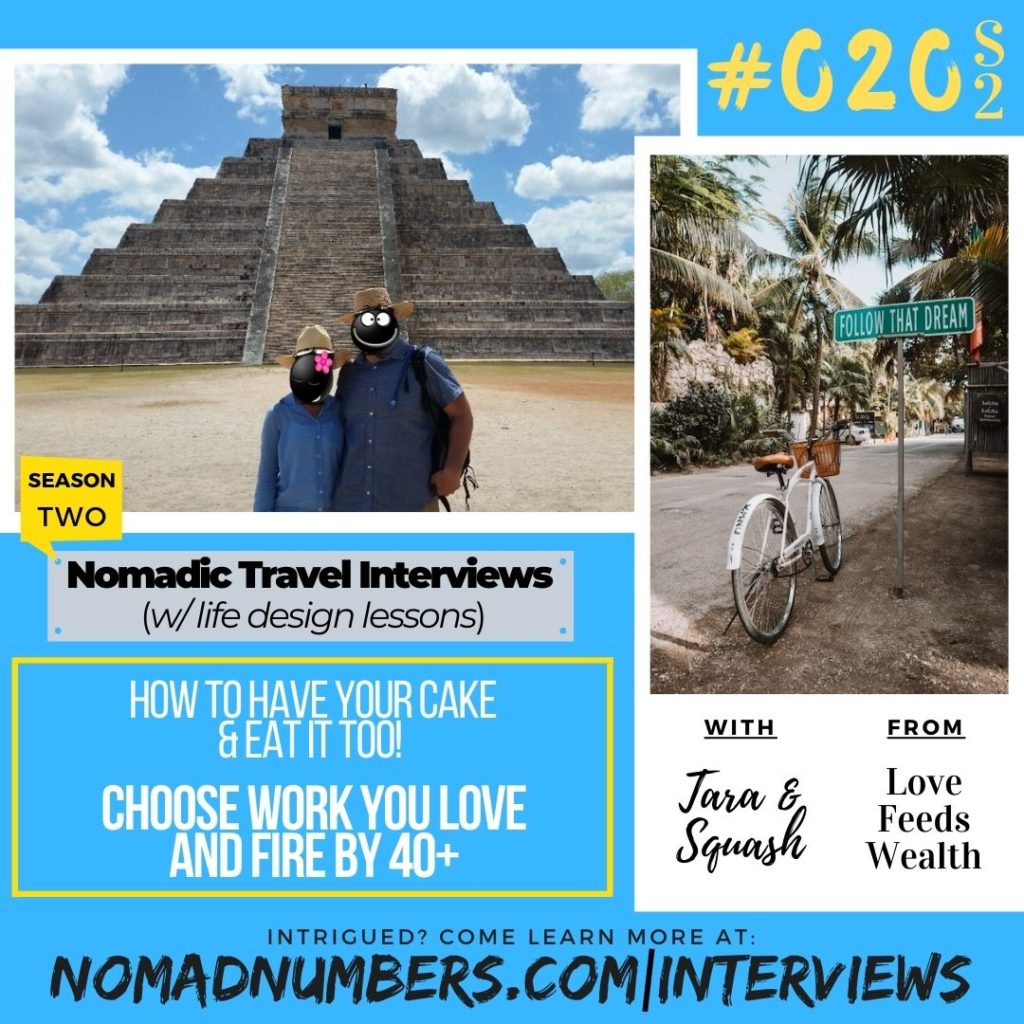
Tara Red @ Love Feeds Wealth
Some links to the products mentioned below are affiliate links, meaning that if you click and make a purchase, we (Nomad Numbers) may receive a commission at no additional cost to you. For more information please review our disclaimer page.
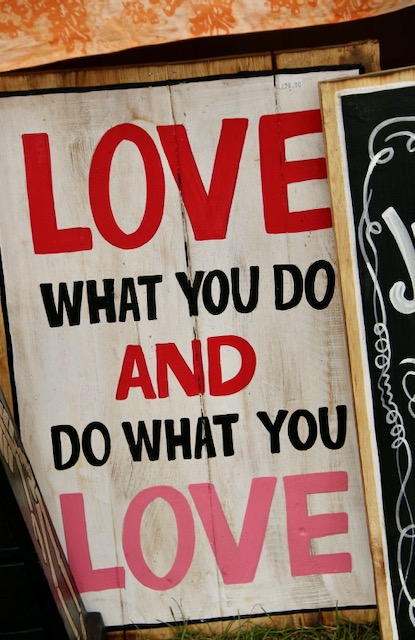
1. Can you introduce yourself?
Tara: My partner (Squash, age 35) and I (Tara, age 40) live on the outskirts of a large urban county in the western United States. While Squash can trace at least three generations back to his home state, I am a second-generation American whose parents immigrated to the US in the 1970s. I have been a financial independence/retire early (FIRE) adherent since 2015. Squash joined me in its pursuit after we were engaged to be married. While I am a social worker by profession, I currently am employed in higher education administration. Squash is employed as a programmer analyst in a research institute.
Life design journey
2. What does a typical day in your life look like for you today? How does it differ from your life before?
Tara: Prior to embracing FIRE, Squash and I lived in separate households, nearly 60 miles apart. Costs related to home ownership dominated each person’s monthly expense. We both paid installments against the two auto loans we had used to purchase our respective vehicles. We commuted using a combination of these cars, rail, and bus to our offices in the urban core, altogether sacrificing 3 hours per day, 4-5 days per week for the privilege of earning our salaries. We purchased caffeinated beverages and/or lunch daily. Our goal was to prepare at least 50% of our meals at home, and we often fell short. While I accrued more paid time off, Squash accrued only 10 days per year. He postponed travel abroad in order to visit family over holidays. My then boss advised that I should take no more than 1 week of vacation at once, and never outside July or December. Individually and together, we’d often lament that we never had enough time to do all that we wanted.
Since consolidating our households and embracing FIRE as a married couple, Squash and I repeat a similar workday routine. He wakes earlier than I do most mornings and makes our coffee as an incentive for me to rise. The stay-at-home order last March finally eliminated our commute. We now work at the kitchen table, garage, or home offices. After quitting time, we prepare and eat dinner together, walk for an hour around our neighborhood, and watch a movie before bedtime. Remote work not only has returned 12 hours per week but also increased our productivity and flexibility for engagement across multiple life domains (work, hobbies, family, health). If our location independence could be made permanent, our present routine provides a framework for our preferred life design (plus a nomadic lifestyle of slow travel minus a pandemic).
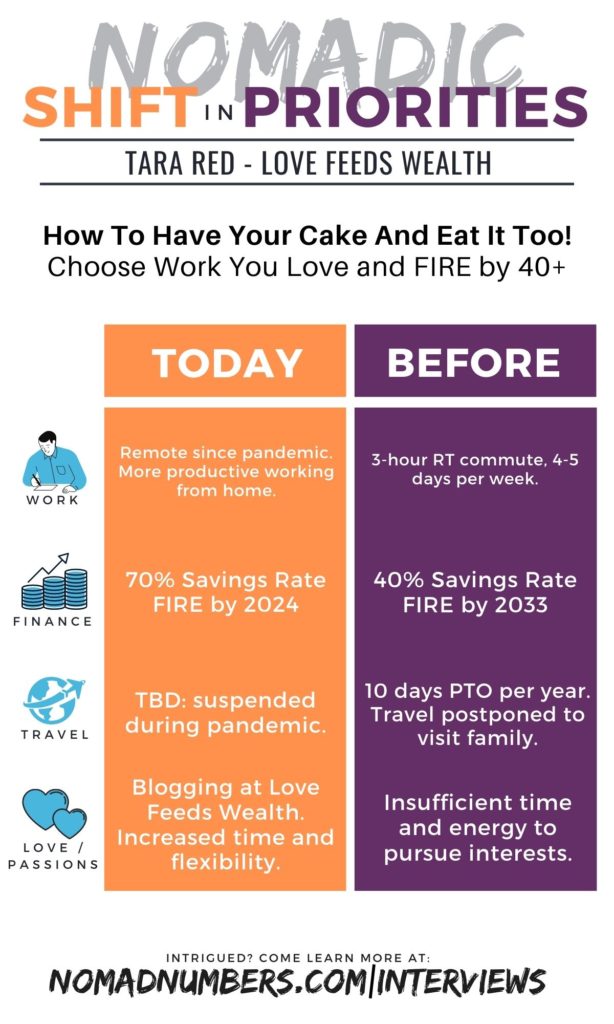
Life design journey
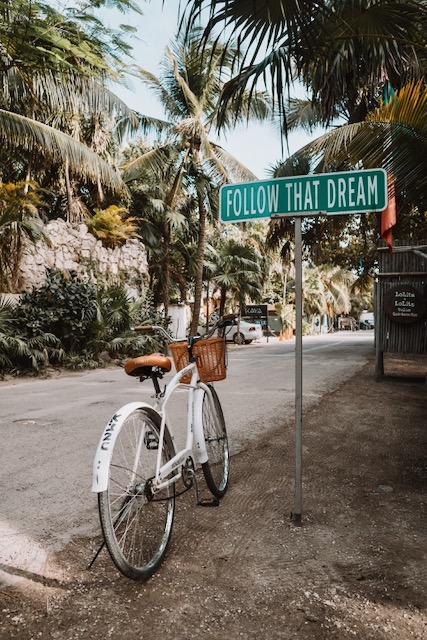
3. What inflection point led you to decide to change your life trajectory?
Tara: I credit our first vacation together (Akumal, Mexico) as motivation for financial independence/early retirement (FIRE). On the Monday after our return in April 2015, my commute blessed me with a dreary view of a correctional facility. Automatic thought: “This is what every Monday will look like for the rest of my life until I die …” I googled “early retirement” as soon as I got to my desk. After an induction period facilitated by generous FIRE bloggers, Squash and I hatched a plan and named it Operation Financial/Location Independence (OperFLI).
4. What were some of the limiting beliefs that hold you back initially?
Tara:
- I became a social worker because if “I chose work I loved, I’d never work a day in my life“.
- Social work is a calling. What does it mean if I don’t want to work as a social worker anymore? For those familiar with cognitive-behavioral therapy (CBT), core belief: I’m worthless.
- Did I make a mistake choosing my profession in the first place? Again for those familiar with CBT, core belief: I’m incompetent.
5. What did you do to prepare the transition to this new destination and how did you do it?
Tara: Exceedingly timely, a former colleague now friend mentioned that she and her partner planned to retire early before Squash and I left for Akumal. Soon after we returned, she introduced me to the Mr. Money Mustache blog and helped me fill out a spreadsheet that would calculate my time to FIRE based on multiple variables I could input, e.g. average annual expenses, current assets, (anticipated) annual rate of return, and withdrawal rate. From there, I read JL Collins’ Stock Series and the Mad Fientist blog, ultimately downloading the latter’s Financial Independence Spreadsheet to help me track my progress over time. Despite adopting a more customized spreadsheet Squash maintains for us now, I still monitor my progress using the Mad Fientist’s Financial Independence Laboratory.
6. Once on the journey, what were some of the biggest wins you realized? What were the challenges you had to face along the way?
Tara: The biggest win occurred when Squash and I consolidated households after we married. Squash sold his house and invested the proceeds in his brokerage account. I sold my car since Squash was willing to share transportation with me. Instead of upgrading to a bigger, more expensive residence (as many well-wishers expected), we decided to stay in the home I had purchased as a single person. By maintaining the overhead of one but sharing its expense across two incomes, we diverted our excess earnings to our employer-sponsored retirement and individual brokerage accounts to accelerate our time to FIRE. By maintaining the same standard of living, we eliminated 9 years of additional full-time work through these measures.
7. How long did/will it take to reach the destination? Any advice to make the journey as enjoyable as possible?
Tara: Building financial capability permits choosing a non-lucrative career you love and financial independence/early retirement. When I started my first full-time job as a social worker, I imagined doubling my salary close to my career’s peak. However, my initial expectation substantially underestimated my earning potential in a high cost of living (HCOL) area. Some call this imposter syndrome, others the glorification of voluntary poverty. Fortunately, FIRE focused my attention on building financial capability rather than spurring lifestyle inflation, motivating me to cultivate my ability and opportunity to pursue happiness however it morphs over time.
As of this writing, our calculations suggest we will reach FIRE by August 2024 before our target date in December 2025. Since investing requires surplus funds, the goal is to increase the difference between income and expenses. Prior to FIRE, I made student debt repayment my first priority. Squash avoided it entirely by working full-time while paying in-state tuition at public universities. Second, my advice would be to treat frugality as a game. Once at a net worth of zero, experiment with how much spending you can decrease before life satisfaction drops. Third, treat this point as your limit and proceed to maximize earnings in order to build surplus. For us, maximizing earning potential involved obtaining graduate degrees and special (overload) assignments alongside full-time employment in order to secure promotions, then plowing additional earnings into investment accounts to generate passive income.
8. What did the people around you (friends/family/colleagues…) think of your plan to take on this new life?
Tara: Originally, my parents were doubtful of our FIRE plans. However, we have been transparent about our goals and progress. As we approach our FIRE number, our family has been encouraging.
Initially, my parents felt disappointed that I would be willing to abandon work proactively, decades before traditional retirement age. My family celebrates professional success as the primary pathway to personal fulfillment. Professional and personal identities are fused. They had hoped that by choosing a profession I loved, I would feel compelled to pursue it indefinitely. However, by choosing a profession I loved, I also willingly sacrificed external interests. I worked full-time while studying full-time and/or pursuing a second part-time job in order to maximize career opportunities for 15+ years. By the time I met Squash, I was starting to feel burnout. By the time Squash and I married, my trajectory had plateaued. My prior motivation to “realize my potential” felt grandiose. Fortunately, embracing FIRE has spurred me to make strategic decisions to expand my financial capability. Some examples include taking risks like advocating for myself in salary negotiations (more bravely than I would have otherwise) and compromises like choosing roles that maximize both income and job security.
Cost of living

9. How much yearly expense did you have before and after this change in lifestyle?
Tara: Prior to consolidating households, our combined annual expense was nearly $120,000. While we maintained separate mortgages and car notes, Squash and I discovered our spending was fairly equivalent. In contrast, over the past 12 months, our expense has been about $78,000. As you’ll see from the table below, we have little claim to frugality. We had already made decisions about college majors, career trajectories, and home ownership in a HCOL area before deciding to pursue FIRE. Despite coming to FIRE in our early to mid-30s, our actions to maximize income, reduce expenses, and invest the difference will help us reach financial independence within a decade.
| Category | Description | Cost per person and per day |
|---|---|---|
| Accommodation | Anything you pay toward keeping a roof over your head (ie. rent, internet, water, utilities…) | $45.73 |
| Alcohol | Anything related to alcohol you purchase | $0 |
| Groceries | Anything related to the groceries you get to cook at home | $7.76 |
| Dining out / Take-out | Anything related to what you spend when dining outside of your home. | $5.31 |
| Activities / Entertainment | Anything you pay related to ‘fun money’ (ie. park fees, outdoor activity, AirBnB experience…) | $1.16 |
| Health Care | Any cost related to treatment you are receiving on a given location. [Excludes (pre-tax) health and dental insurance premiums] | $1.09 |
| Travel | This is a broad travel category for any travel related expenses, including health travel insurance + any international transportation + visa. | $6.23 |
| Local Transportation | Anything related to transportation within the boundary of the location you are staying at. | $10.40 |
| Living expenses | Anything else that you are spending money on to live in a specific location that can’t fit anywhere else (ie. Haircut, Netflix, cell phone…) | $29.28 |
| Daily total (per person) | $106.96 | |
| Monthly equivalent (per person) | $3253.37 | |
| Yearly total (per person) | $39040.40 | |
| Yearly total (for Tara + Squash) | $78080.80 |
10. What strategies have you used to reduce your expenses? And what strategies have you used to fund your lifestyle?
Tara: Neither of us entered our relationship with consumer debt, beyond our respective mortgages and car notes. Since we had accumulated some assets (employer-sponsored retirement accounts and home equity) separately prior to our marriage, we chose to preserve our individual accounts and continue our contributions independently. Prior to our wedding, we opened a single joint checking account by depositing all of our wedding gifts. Before our first anniversary, as tribute to our future financial independence, Squash sold his house, I sold my car, and both of us swept the proceeds into our respective brokerage accounts.
On the first of every month, each of us deposits the same amount, a sum amounting to roughly half of our shared household expenses, including mortgage and escrow, utilities, insurance, and groceries into the joint account. On the same date since October 2016, we jointly have updated an Excel worksheet which tracks our incomes, accounts, expenses, and savings and calculates our time to OperFLI based on a 6.61% real rate of return (average return on investments accounting for inflation) and 3.25% withdrawal rate. On the 11th of every month, we celebrate the anniversary of our relationship by sweeping post-tax savings into VTSAX. Credit to the Mad Fientist for providing the Excel file as a template, Big ERN for the baseline assumptions, and JL Collins for his “simple path to wealth”.
Lessons, tips & advices
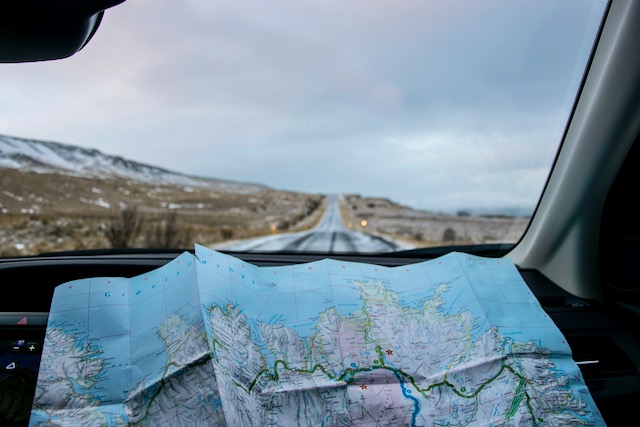
11. If you had to do it again, what would you do differently?
Tara: If I had to do it again, I would deposit the maximum affordable amount into my employer-sponsored retirement accounts and traditional or Roth individual retirement accounts (IRA)… instead of saving for a down payment for a home mortgage over the first 10 years of my career while my earnings were lowest.
12. What advice do you have for others who are considering going through a life design exercise?
Tara: My recommendations center on how to initialize financial capability through 4 steps that I’ve described on my blog (links at the end of this post).
- Study your pay stub. Note how much you are paid each period (daily, weekly, biweekly, or monthly) and compare it to how much you bring home or is deposited in your account.
- Calculate your average annual expenses by tracking your monthly expenses starting today. Repeat monthly. Indefinitely.
- Add up all of your account balances. Remember your assets like cash, checking, savings, tax deferred, and taxable investment accounts as well as your debts like mortgage, student, car, and credit card loans.
- Use Steps 1 through 3 to build out a Financial Independence Spreadsheet.
After paying off my student loans, and then saving for a down payment on a home mortgage loan, I had no motivation to continue saving. I assumed that my motivation to work full-time in my chosen profession would continue indefinitely, or perhaps most misguidedly, that I could fulfill other goals (like travel or friendships) through my career. While certainly possible, my single-minded focus blocked my imagination. Now, Squash and I intend to leverage FIRE in order to pursue a nomadic lifestyle of slow travel. I’m fortunate that most of my meaningful friendships forged during adulthood are former colleagues, and these friendships strengthened after we stopped sharing an employer.
13. What is one resource (blog, podcast, book beside your own) you recommend for those that want to design their own life?
Tara:Based on my own experience: The Mad Fientist
Looking ahead
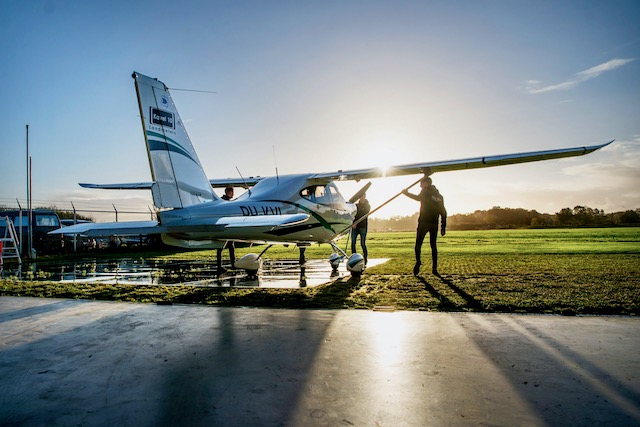
14. What is next for you?
Tara: Squash and I will continue working for our current employers until we reach our FIRE number. If either one of us is laid off in this post-pandemic recession, we will run our numbers to determine if geoarbitrage might permit us to launch OperFLI sooner than intended. If not, one or both of us will seek location-independent employment that will allow us to begin a nomadic lifestyle of slow travel when the pandemic (and corresponding visa restrictions) have improved.
Tara: Healthy relationships facilitate financial capability. Not only alignment between spouses or intimate partners but also healthy relationships with our parents, children, siblings, friends, bosses, and coworkers. In some cases, thoughts and feelings about approaching FIRE as a single person also demand attention. My primary aspiration for Love Feeds Wealth is to broaden our conversation about the intersections between healthy relationships and financial capability within the FIRE collective.
Thank you so much Tara and Squash for sharing your life design journey with us. By building financial capability and healthy relationships, you can have your cake and eat it too! It is a testament that you can choose work you love and become financially independent by your 40s… We are cheering for you guys as you are really close to your FI target and will be there to celebrate the milestone with you!
Rapid-fire questions
We like ending every interview asking some fun rapid-fire questions to our guests
| What is your superpower & why? | My superpower is training as a social worker. Social work has taught me the skills to solve problems that often feel insurmountable. |
| What is your favorite travel destination & why? | Angkor Wat (Cambodia). Squash and I traveled there to celebrate our engagement. I look forward to exploring the ruins (with a mind clear of jetlag) when we return during OperFLI. |
| What’s something you can never live without? | Healthy relationships with each other and others. |
| What’s the best piece of advice you’ve received? | Mind your business. |
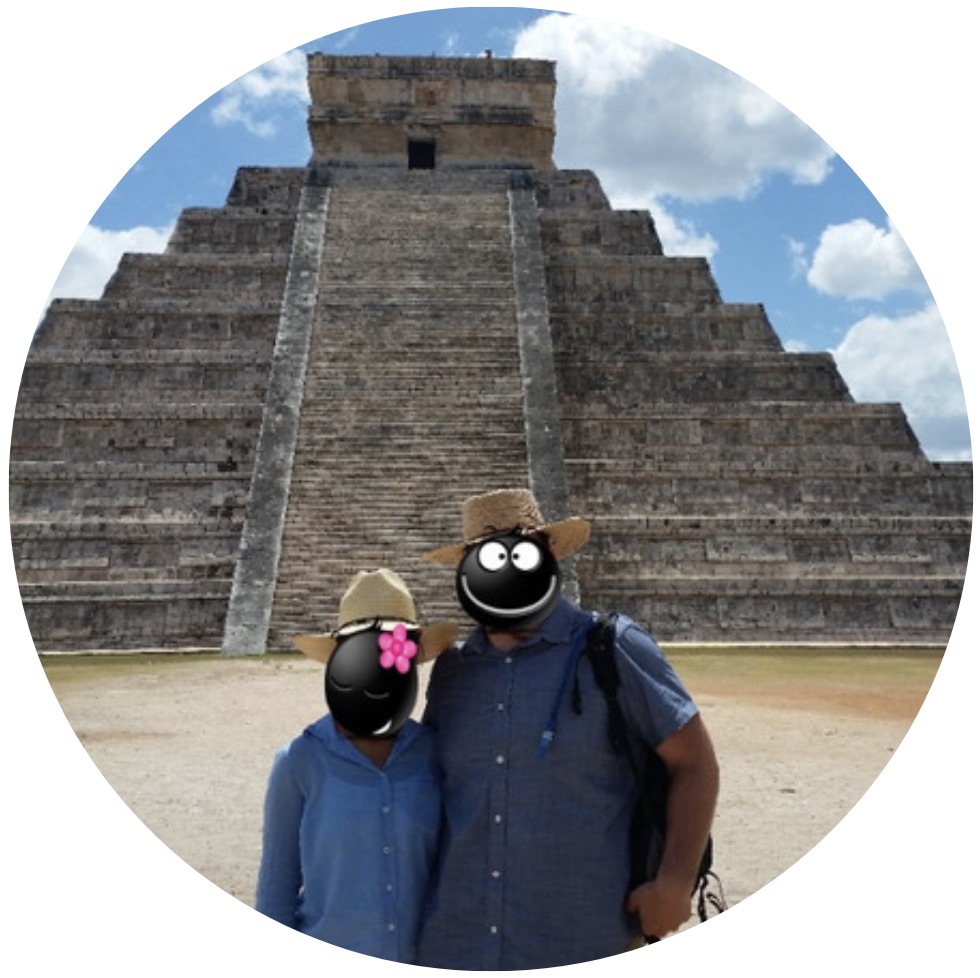
If you want to know more about Tara and Squash you can find them on their blog
Love Feeds Wealth – This is where Tara writes about how to solve problem where healthy relationships and financial capability intersects.
You can also follow Tara on Twitter @LoveFeedsWealth
And don’t forget to check out these posts from Tara’s blog that are very relevant to this interview:
- Financial Independence/Retire Early (FIRE) Strategy
- Operation Financial/Location Independence (OperFLI)
- Initialize Financial Capability
- Dear Tara…
Also check out these external articles related to this interview:
- How Millennials Became The Burnout Generation
- Vanguard Total Stock Market Index Fund Admiral Shares (VTSAX)
- Blogs
Our Bottom Line
Here are the main lessons we took away from this interview with Tara:
- Lesson 1 – “Initialize financial capability” – I like this concept and how Tara explains it on her blog: “I refer to financial capability because financial independence may not be possible or desirable for everyone. Rather, financial capability literally is the ability and opportunity to pursue happiness however it morphs over time”. It’s simple, yet many people feel intimidated to complete this exercise. If you haven’t done it, I highly encourage you to check Tara’s blog post: Initialize Financial Capability for more details to get you started.
- Lesson 2 – “Building financial capability permits choosing a non-lucrative career you love and financial independence/early retirement.” – Tara works as a social worker, a profession she chose not because of the income she is making but rather because it aligns with her values. As she mentioned, the key to early retirement is to increase the gap between how much you earn and how much you spend, which is how much you save and thereby can invest. Lots of people automatically think that making a lot of money is the only way to reach early retirement but many high earners also tend to inflate their lifestyle accordingly and they might not save much more than the average American (<10%). So instead of looking at how much you are making, look first at how much you are saving and investing.
- Lesson 3 – “I credit our first vacation together (Akumal, Mexico) as motivation for financial independence/early retirement (FIRE)” – Loving this. By taking a vacation and disconnecting from the daily routine you get to see the world differently and the more stressful your job is the harder it will likely be for you to get back to the daily grind. Tara took this as her wake up call to start looking for an alternative, which for them led them to become financially free through a project they called: Operation Financial/Location Independence (OperFLI).
- Lesson 4 – “Embracing FIRE has spurred me to make strategic decisions to expand my financial capability”. By taking control over her finances and having a clear roadmap on how to get there (with also building a cushion for safety), Tara felt better equipped to negotiate her salary or even the type of work she was looking to do. Financial Independence isn’t just a means to retire early. In my humble opinion, it is much more than that. It is a tool that everyone should equip itself with, a wonderful armor that you can use to take more risk in your own life and life with less stress!
Sometimes we need to hear about others making unconventional decisions before we can have the confidence to make our own. If you have (or are on a path to) an unconventional journey to improve your life that has a nomadic component to it and are interested to share it, please reach out to us as we would love to consider your story for our blog.
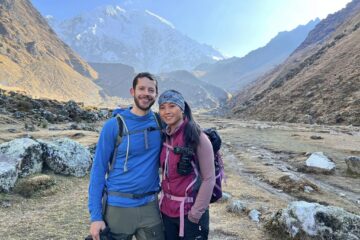
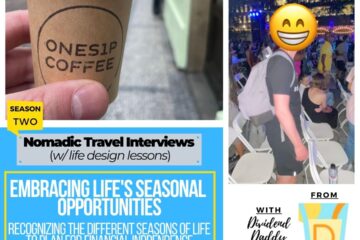
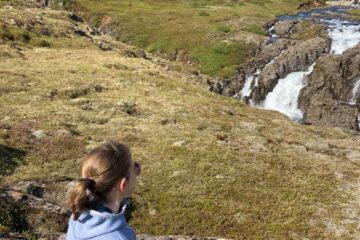
2 Comments
Tara Red · November 23, 2020 at 4:06 pm
Thank you for the opportunity to participate in your interview series, Nomad Numbers! Your site offers great information and resources for aspiring travelers like me. I hope our paths cross in real time sooner than later.
Mr. Nomad Numbers · November 24, 2020 at 11:15 am
Thank you. It was great to learn about your unique and inspiring story and our hope our audience will be inspired too!